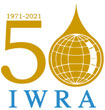Programme
Foundations for Global Water Security and Resilience:
Knowledge, Technology and Policy
Plenary Programme
Date: 29 November 2021, 9:30-11:30
Venue: 5F, Auditorium, EXCO
Welcome Remarks
- Gabriel Eckstein , President, International Water Resources Association
- Deghyo Bae , President, Korean Water Resources Association
- Hong Jeong Kee , Vice Minister, Korean Ministry of the Environment
- Kwon Young-jin , Mayor of Daegu, Daegu Metropolitan City
- Jae Hyeon Park, President & CEO, K-water
High Level Speakers
- H.E Serigne Mbaye Thiam, Minister of Water and Sanitation, Republic of Senegal
- Virginijus Sinkevičius, European Commissioner for the Environment, European Union (rec)
- H.E. Mr. TIAN Xuebin, Vice Minister, Chinese Ministry of Water Resources (rec)
- Gilbert F. Houngbo, Chair, UN Water / President, International Fund for Agriculture Development (rec)
- Armida Salsiah, Under-Secretary-General, United Nations / Executive Secretary, UN-ESCAP (rec)
- Loïc Fauchon, President, World Water Council
- Aziza Akhmouch, Head of Cities, Urban Policies and Sustainable Development, OECD (rec)
- Sasha Koo Oshima, Deputy Director, Land and Water Division, FAO (rec)
- Jennifer Sara, Global Director, Water Global Practice, World Bank
- Shin Bongwoo, Director, UNESCO i-WSSM
World Water Envoys
- Georgina Mukwirimba (Zimbabwe) – Water Supply
- Deepesh Jain (India) – Safety water and sanitation
- Maria Almonte (Dominican Rep.) – Urban river management
- Bayan Khalaf (Palestine) – Agrochemical pollution
- Pallavi Pokharel (Nepal) – Groundwater pollution Closing Remarks
- Gary Jones , Chair, International Scientific Committee of XVII Congress
Announcement of IWRA Awardees in 2020
IWRA is pleased to announce the distinguished recipients of the Association’s 2020 awards.
You are invited to come and meet these amazing water leaders at the XVII World Water Congress taking place in Daegu, Republic of Korea, from 29 November - 3 December 2021, where there will be a dedicated IWRA Awards Ceremony.
The IWRA Executive Board congratulates all of the winners and thanks everyone for making so many nominations to be considered by the Awards Committee for this year’s honours. This was no easy task for the Committee. It is inspiring to be able to recognise the achievements and contributions that all of these people have made so far towards the sustainable management and use of the world’s water resources.
Ven Te Chow Memorial Award & Lecture
The Ven Te Chow Memorial Lecture provides for an outstanding lecture at IWRA’s World Water Congresses in honour of the first president of the IWRA. Awardees are well known in the water community, and have a demonstrated ability to give outstanding lectures.
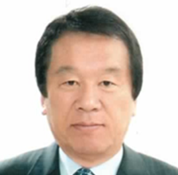
Soontak Lee
Yeungnam University, World Water Council & IHES
- Biography
- Prof. Dr. Soontak Lee is presently a Distinguished Professor / Professor Emeritus of Hydrology and Water Resources Engineering of Yeungnam University, Korea. He is also a Honorary Governor of the World Water Council (WWC) and President of the International Hydrologic Environmental Society (IHES). Prof. Lee has been engaged as a Co-Chair of the International Scientific Committee (ISC) of the 7th World Water Forum in Daegu-Gyeongbuk Korea in 2015, as well as a Chairperson and President of the UNESCO-IHP Intergovernmental Council from 2010 to 2012. He has obtained four Doctoral degrees, Ph.D., D.Sc., Hon. D. Eng. Sc. & Hon. Dr. Tech. Sc.
More information: facebook.com/soontak304
Crystal Drop Award
The Crystal Drop Award is provided to organizations or individuals in recognition of their laudable contributions to the improvement of the world’s water situation. These contributions may be through path breaking research on water issues, practice in water management or governance, knowledge transfer or dissemination, and/or outstanding contributions.
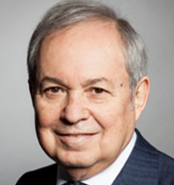
Doğan Altinbilek
Middle East Technical University
- Biography
- Prof. Doğan Altinbelik is an Emeritus Professor of Water Resources Engineering at Civil Engineering Department of Middle East Technical University, Ankara, Turkey. After receiving his B.S. degree in Civil Engineering from Middle East Technical University (METU) in 1965, Prof. Altinbilek received his M.S. and Ph.D. degrees in Civil Engineering from Georgia Institute of Technology, Atlanta, USA. Since 1970, he has been involved in an academic profession holding posts at Middle East Technical University of Turkey and King Abdulaziz University of Saudi Arabia. From 1996 to 2001, he was the Director General of State Hydraulic Works (DSI), which is the major government agency in Turkey responsible for water resources development including hydropower, irrigation and water supply to large cities. From 2005 to 2009, Prof. Altinbilek was appointed as President of Energy Group at IC Holding, in Turkey and also as Chairman of Board of AES-IC Ictas Energy Production Company.
Prof. Doğan Altinbilek is an Honorary Member and the Past President (2013-2015) and Past Vice President (2007-2019) of the International Water Resources Association (IWRA). In addition, he served as a Governor (2006-2018) and Vice President (2012-2018) of World Water Council (WWC) where he continues to serve as an Honorary Governor. Prof. Altinbilek is also an Honorary Member and the Past President (2004-2008) of International Hydropower Association (IHA).
More information: https://ce.metu.edu.tr/en/personal-information?user_code=hda
Water Drop Award
The Water Drop Award recognises a student or early career professional, typically under the age of 35, who has made an innovative contribution to the water sector. These contributions may include, but are not limited to ground breaking recent research on water issues, entrepreneurship in the water sector, and raising the profile of younger people in the water sector.

Laura Movilla Pateiro
University of Vigo
- Biography
- Dr. Laura Movilla Pateiro is a lecturer in Public International Law at the University of Vigo, Spain. Her main field of research is international water law, with a particular focus on the law of transboundary aquifers.
More information: www.linkedin.com/in/laura-movilla-27633621
New Honorary Members
Honorary Membership is the highest honour IWRA can bestow and is awarded to those who have made significant contributions to the field of water resources and/or attained acknowledged eminence in some field of water resources. IWRA Honorary Membership provides free membership for life to an individual.
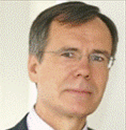

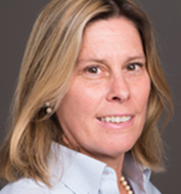
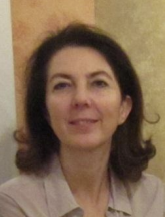

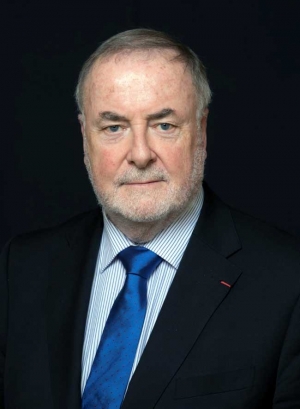
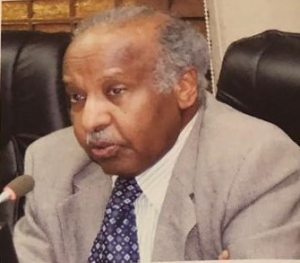
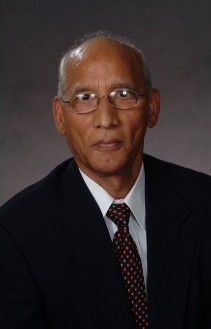
New Fellow Members
IWRA Fellow Membership is granted to an existing IWRA member who has been with IWRA for at least ten years and has either made major contributions to the Association, has held a position of high responsibility, has attained a high level of academic qualification in the field of water resources management, or has made significant contributions though their work. IWRA Fellows are eligible for discounted membership for life.
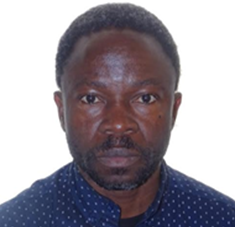
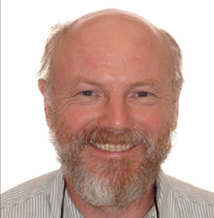
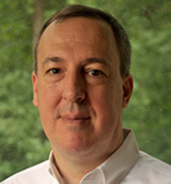
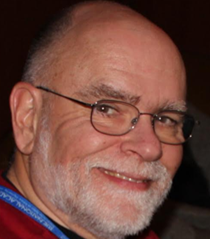
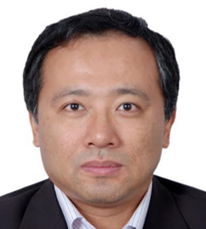
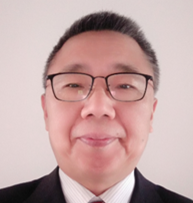
Shaofeng Jia
Institute of Geographic Sciences and Natural Resources Research, Chinese Academy of Sciences
Biography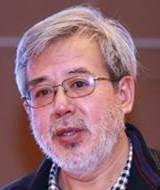
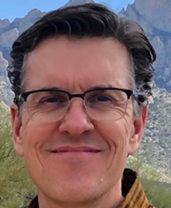
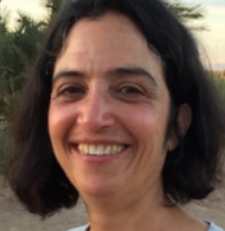
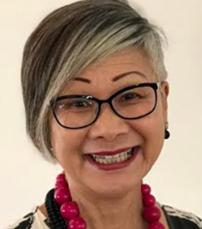
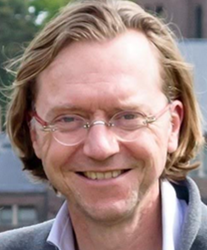
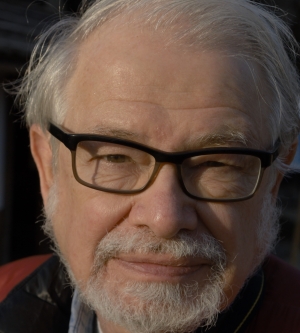
James Nickum
Editor-in-Chief of IWRA’s journal “Water International” and former IWRA Executive Board member
Biography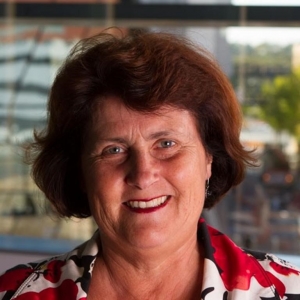

Water International Best Paper 2018/2019 Awards
We take the nomination of Best Paper and Honourable Mention very seriously, so the selection process is a bit elaborate. A short list of candidate papers is drawn up by the editors of Water International and forwarded to the WI Editorial Board, which selects the successful candidates. Selection of best papers is based on relevance, rigor, impact and any other factors deemed important by members of the Editorial Board “jury”.
Authors of awarded papers from 2018, 2019 and 2020 will be recognised at the IWRA XVII World Water Congress, to be held on the 50th anniversary of the IWRA in Daegu, Korea, 29 November to 3 December 2021.
The Best Paper and Honourable Mention awards for 2018 recognize two papers that excel at two different levels, one as a big picture review that brings together critical themes of contemporary water knowledge; the other a novel and robust methodology for studying attitudes, behavior and equity implications of low-income households in developed countries.
The Best Paper and Honourable Mention awards for 2019 look at two timely issues of adaptation to water scarcity—in the context of social shocks to the water sector of Jordan, a water-scarce country with a history of hosting refugees, now trying to cope with the Syrian refugee crisis; and the development of water rights and markets in a highly contested arid part of China.
All exemplify what the International Water Resources Association and this its official journal aim to be -- interdisciplinary, multinational, and linking science/technology and policy.
BEST PAPER 2018 AWARDEE
Water security and the pursuit of food, energy, and earth systems resilience
Christopher A. Scott, Tamee R. Albrecht, Rafael De Grenade, Adriana Zuniga-Teran, Robert G. Varady and Bhuwan Thapa
Water International, 43.8, 1055-1074 doi 10.1080/02508060.2018.1534564
Part of a special issue on the Global Water Security Challenge, this article addresses the emergence and interrelation of food, energy, and water security in terms of resource use and ensuring societal and environmental outcomes.
It is a well-written big picture review article that helps make conceptual leaps in a way that makes it a candidate for a foundational text for students and practitioners about the water-energy-food nexus.
At time of writing, all authors were associated with the University of Arizona and its Udall Center for Studies in Public Policy. Christopher A. Scott, an IWRA Fellow, was the Director of the Udall Center and Professor in the School of Geography, Development & Environment. Since 1 July 2021 he is Professor, Department of Ecosystem Science and Management and Maurice K. Goddard Chair in Forestry and Environmental Resource Conservation at Pennsylvania State University; Tamee R. Albrecht was also PhD Candidate at the School of Geography, Development & Environment; Rafael de Grenade was Research Associate at the Udall Center and is now a Senior Biologist/Environmental Consultant; Adriana A. Zuniga-Teran Is Assistant Research Scientist, School of Landscape Architecture and Planning; Robert G. Varady, an IWRA Fellow, is Research Professor of Environmental Policy, Udall Center; and Bhuwan Thapa was a Ph.D. Candidate at the School of Geography & Development at time of writing, and is now Postdoctoral Fellow, The Center for Agroforestry, University of Missouri, Columbia.
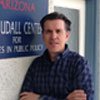
Christopher A. Scott
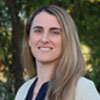
Tamee R. Albrecht
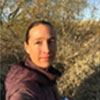
Rafael de Grenade
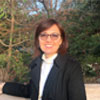
Adriana A. Zuniga-Teran
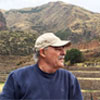
Robert G. Varady

Bhuwan Thapa
HONOURABLE MENTION 2018 AWARDEE
Poor water service quality in developed countries may have a greater impact on lower-income households
Anna Robak and Henning Bjornlund
Water International, 43.3, 436-459 doi 10.1080/02508060.2018.1446613
Part of a special issue of Water International, on Wicked Problems of Water Quality Governance, this article finds from a survey of water supply customers in New Zealand that lower-income households are likely to invest more in averting perceived poor water quality than more well-off customers. It uses a novel approach with robust methodology, with good documentation and categorization of averting behaviors with an excellent discussion section. The research design has strong potential to be replicated and tested in other localities.
This article builds on the Ph.D. work at the University of South Australia of Anna Robak, who at time of writing was Director, Whole of Life Asset Management, at Opus International Consultants Limited, Fredericton, NB, Canada; she is now Director, Research & Innovation, WSP in Canada, also in Fredericton, and Adjunct Professor at the University of New Brunswick; Henning Bjornlund, an IWRA Fellow, is Research Professor in Water Policy and Management at the University of South Australia.

Anna Robak
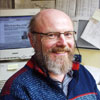
Henning Bjornlund
BEST PAPER 2019 AWARDEE
“Hotel Middle East”: social shocks and adaptation in Jordan’s domestic water sector
Natasha Westheimer, Michael Gilmont and Troy Sternberg
Water International, 44.4, 444-462 doi 10.1080/02508060.2019.1622277
This timely, interesting well-written and highly citable article uses an innovative research approach to investigate the Syrian refugee crisis in water-scarce Jordan. The find that frequent refugee crises in Jordan have perpetuated reactive water governance that shapes the sector’s resiliencies, vulnerabilities, and adaptation processes.
At the time of writing, all authors were at the University of Oxford, UK. Natasha Westheimer was an M.Sc. student at the at the School of Geography and the Environment (SoGE) and is now Senior Development Development Associate, Water Team, at the Office of the Quartet, Jerusalem; Michael Gilmont is Research Fellow and now also a Program Manager at the Institute for Science, Innovation and Society; and Troy Sternberg is Senior Research Associate at SoGE.
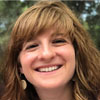
Natasha Westheimer

Michael Gilmont

Troy Sternberg
HONOURABLE MENTION 2019 AWARDEE
Water markets as coupled infrastructure systems: comparing the development of water rights in Heihe, Shiyang and Yellow Rivers
Jesper Svensson, Dustin E. Garrick and Shaofeng Jia
Water International, 4.8: 834-853 doi 10.1080/02508060.2019.1669110
Using a coupled infrastructure systems framework, this article examines the post-1949 water rights systems in arid northwest China, thereby capturing a very important aspect of co-evolving institutions and infrastructure within a comparative frame that is relevant for many contexts beyond China.
Jesper Svensson is reading for a DPhil at the Smith School of Enterprise and the Environment at the University of Oxford, UK, where Dustin E. Garrick is Associate Professor, University of Waterloo, Canada, and Research Fellow, University of Oxford; Shaofeng Jia is Water Professor at the Institute of Geographical Sciences and Natural Resources Research (IGSNRR) at the Chinese Academy of Sciences, Beijing, China.

Jesper Svennson
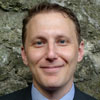
Dustin E. Garrick

Shaofeng Jia
Water International Best Paper 2020 Awards
We take the nomination of Best Paper and Honourable Mention very seriously, so the selection process is a bit elaborate. A short list of candidate papers is drawn up by the editors of Water International and forwarded to the WI Editorial Board, which selects the successful candidates. Selection of best papers is based on relevance, rigor, impact and any other factors deemed important by members of the Editorial Board “jury”.
Authors of awarded papers from 2018, 2019 and 2020 will be recognized at the IWRA XVII World Water Congress, to be held on the 50th anniversary of the IWRA in Daegu, Korea, 29 November to 3 December 2021.
The Best Paper and Honourable Mention awards for 2020 are both international collaborations, one comparing data exchange in transboundary waters, and the other comparing irrigation management transfer programs in four African countries. Both exemplify what the International Water Resources Association and this its official journal aim to be – interdisciplinary, multinational, and linking science/technology and policy.
BEST PAPER 2020 AWARDEE
The devil’s in the details: data exchange in transboundary waters.
Patience Mukuyu, Jonathan Lautze, Alistair Rieu-Clarke, Davison Saruchera and Matthew McCartney
Water International, 45:7-8, 884-900 doi 10.1080/02508060.2020.1850026
This extremely important and illuminating article develops and applies an assessment framework for data exchange to twenty-five transboundary river basins. In so doing, it highlights where data exchange can be improved and the role of global assessment framework indicators in motivating that improvement.
Patience Mukuyu is a Researcher at the International Water Management Institute (IWMI), Pretoria, South Africa; Jonathan Lautze is Research Group Leader at IWMI South Africa; Alistair Rieu-Clarke is Professor at the University of Northumbria, Newcastle upon Tyne, UK; Davison Saruchera is Coordinator of the Water Programme at the International Union for the Conservation of Nature (IUCN), East and Southern African Region, Pretoria, South Africa; and Matthew McCartney is Research Group Leader at IWMI, Colombo, Sri Lanka.
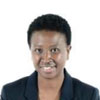
Patience Mukuyu
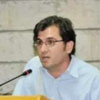
Jonathan Lautze
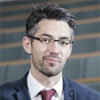
Alastair Rieu-Clarke
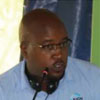
Davison Saruchera
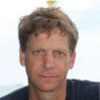
Matthew McCartney
HONOURABLE MENTION 2020 AWARDEE
Irrigation management transfer in sub-Saharan Africa: an analysis of policy implementation across scales
Cesario Cambaza, Jaime Hoogesteger and Gert Jan Veldwisch
Water International, 45.1, 3-19 doi 10.1080/02508060.2019.1702310
This timely and highly relevant article explores how irrigation management transfer policies were implemented in Mali, Mozambique, Malawi and Zimbabwe. It finds that those policies were shaped by the interplay between international donors, macroeconomic dynamics, national politics and the interactions with (and the nature of) irrigation infrastructure, bureaucracies and organized users.
Cesario Cambaza is Head of the Consulting, Studies, Projects and Fundraising Department at the Institute Superior Politecnico de Gaza, Chokwe, Mozambique; Jaime Hoogesteger is an Assistant Professor and Gert Jan Veldwisch is an Associate Professor in the Water Resources Management Group, Wageningen University, the Netherlands.
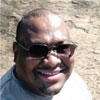
Cesario Cambaza
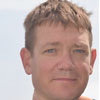
Jaime Hoogesteger
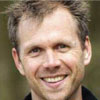
Gert Jan Veldwisch
WWC Plenary Session PL3
High-Level Panel 1: 50 Years of Water Resource Management – Past, Present
and Future
Auditorium, 5F, EXCO
09:00-10:00, 30 November 2021
Moderator: James E. Nickum, Editor-in-Chief, Water International
Panelists
- Gabriel Eckstein, President, International Water Resources Association (In-person)
- Lesha Witmer, Advocacy, Women for Water Partnership (In-person)
- Yoonjin Kim, Planning Director, the Korea Water Forum (In-person)
- Bassel Daher, Assistant Research Scientist, Texas A&M Energy Institute; Adjunct Assistant Professor, Department of Biological and Agricultural Engineering, Texas A&M University (In-person)
- Georgina Mukwirimba, IWRA’s World Water Envoys (In-person)
Session Summary
Looking into the next 50 years, what water challenges are likely to be with us in 2071, or at least for decades to come? Especially, what ones are out of the COP-SDG spotlight but nonetheless critical? Are there sleepers or new issues on the horizon, or problems that are right in front of our eyes but not being addressed? What role can IWRA play in addressing these challenges?
Objective of the session
To mark the 50th anniversary of the founding of IWRA and to look at the challenges in the water sector in coming decades, as well as the possible ways IWRA can engage in meeting those challenges.
Session Programme
| Introduction | James E. Nickum, Editor-in-Chief, Water International |
| Questions to Panelists |
|
| Closing Remark | James E. Nickum, Editor-in-Chief, Water International |
WWC Plenary Session PL4
High-Level Panel 2: Multi-Stakeholder Science and Policy Dialogue to Support
Implementation of Sustainble Development Goals
Auditorium, 5F, EXCO
09:00–10:00, 1 December 2021
Moderator: Rabi Mohtar, Professor, American University of Beirut
Panelists
- Serigne Mbaya Thiam, Minister for Water and Sanitation, Government of Senegal (In-person)
- Nara Lee, Assistant Representative, FAO Partnership and Liaison Office, Republic of Korea (In-person)
- Jong Jin Lee, Vice President and Chief Global Office, K-water, Republic of Korea (In-person)
- Bassel Daher, Assistant Research Scientist, Texas A&M Energy Institute; Adjunct Assistant Professor, Department of Biological and Agricultural Engineering, Texas A&M University (In-person)
Session Summary
This session focuses on unlocking new potential for addressing the interconnected resource challenges of the SDGs by bridging accumulated experiences in practice, policy, and science with theories and practices to support SDGs implementation. Using pilot implementation projects (case studies) from several SDG hotspots around the globe, panel members will share lessons learned about the related science, practice and policy approaches. They will address the use of these and other, relevant case studies to achieve convergence and increased stakeholder understanding of the trade-offs associated with implementation of the SDGs. The panelists will showcase innovative methods, approaches, and practices to address the SDGs as a system of interconnected goals. It will highlight the value of bridging policy and practice in the physical and social sciences, and present ways in which to optimize existing resource use to achieve the SDGs. These shared experiences and discussions will contribute to efforts to operationalize systems-level solutions as we move toward innovative, interdisciplinary, and sustainable implementation of the SDG agenda. Documentation will include a white paper summarizing the discussions and will identify the session’s specific conclusions and recommendations.
Descrption
Growing pressures to meet demands for water, energy, food, health, education, and equity in quality of life, are driven by the risks of climate change, increasing global populations, rapid urbanization, changing diets, and economic growth. Primary resource security is central to healthy, sustainable economies, however, these pressures are exacerbated by interdependency of tightly interconnected resource systems. Planning future allocation and management of these resources must account for these interdependencies and address their potential trade-offs. Failure to do so risks the unintended consequences likely to result from attempting to address them as singular sets of the challenges, and such failure is likely to negatively impact the achievement of the Sustainbale Development Goals.
During the coming 15 years, 193 United Nations member states are committed to work to achieve 17 Sustainable Development Goals (SDGs) for water, energy, food, other human securities, and those related to economic growth, sustainable consumption, health, climate, and more. The 17 Goals include specific targets and local indicators to monitor progress toward their implementation. Our community of nations has a unique opportunity to leverage momentum toward achieving the SDGs. As we work to do so, we must be aware of the extent of interconnectedness and potential competition between the 17 goals. To ensure achieving the goals by 2030, and to avoid unintended consequences, action plans must be developed that promote an understanding of the interconnections between the physical resource systems and the stakeholders involved in their consumption. These innovative plans must cross multiple scales and will benefit from a framework for a structured approach that promotes and guides interdisciplinary collaboration. In 2016, a consortium of partners was established and works to catalyze constructive dialogue regarding ways in which to collectively address the challenges. The consortium builds upon key milestones from Stockholm (WWW 2016), Cancun (WWC 2017), Brasilia (WWF 2018), Boston (ASABE, 2019) and New York (ICSD, 2019).
This special session will share data, knowledge, tools, and lessons learned about the SDGs as a system of interconnected goals. The partners will showcase innovative methods, approaches, and practices to address the challenges to implementation of the SDGs through bridging policy and practice with the physical, social sciences. They will present ways in which to optimize existing resource use to achieve the SDGs, showcasing pilot implementation projects that address various SDGs hotspots globally.
The specific session goals are to:
1 - Share lessons learned from the science and practice communities toward SDGs implementation across both scale and sector;
2 - Discuss ways to improve scientific understanding, governance, and institutional structures to more effectivly respond to the challenges of operationalizing solutions for SDGs implementation; and
3 - Discuss ways in which focused dialogue on state-of-the-art technological, social, and policy interventions can be catylzed among multi-sectoral stakeholders and interdisciplinary research groups to better
address the identification of research needs, priorities, and effective implementation of lessons learned.
Session Programme
| Welcome and Introduction | Rabi Mohtar, Professor, American University of Beirut |
| Questions to Panelists |
|
| Q&A from the general audience |
Co-moderators
|
| Wrap-up | Rabi Mohtar, Professor, American University of Beirut |
High-Level Panel 3:
Water Related Data, Technology and Capacity Building for Developing Countries
Auditorium, 5F, EXCO
09:00-10:00, 2 December 2021
Moderator: Tom Soo, Executive Director, IAHR
Panelists
- Eric Tardieu, Director General, International Office for Water
- Dominique Berod Head, Earth Systems Monitoring Division, WMO
- Waqas Burney, Partner Manager, Google Search (APAC)
- Pauline Mufeti, Head of Hydrological Services, Namibia
Session Summary
The acceleration of the information age and our capacity to harness data and technologies is impacting the way that humans are able to understand and implement solutions in water resources management in unprecedented ways. The current trends in data, artificial intelligence, connectivity, remote sensing, real-time access and modelling give rise to opportunities to improve our decision making. Opportunities to work at impactful scales with a widening variety of stakeholders and platforms, including innovations and entrepreneurship are augmenting our data and technological potential. Data harmonisation, inter-operability and our ability to interpret and utilise information in a concrete manner from national sources as well as the multitude of potentially useful other sources remains an important challenge. In addition, a key limitation in developing countries remains the continuing lack of basic water resources data. Despite the steady and rapid rise of Information and Communications Technologies uptake on a global level, developing countries still lag far behind. The digital divide and appropriate data technologies remain an important problem that is further exacerbated by insufficiencies in capacity to collect, assess, use and share the necessary data to enable improved outcomes for safe water supply, sanitation and society´s ability to sustainably harness water resources to drive socio-economic development. New opportunities are created through emerging technologies and a new, unified, data policy of the World Meteorological Organization (to be approved by WMO Congress in October 2021), without forgetting the Water and Climate coalition in the framework of the SDG 6 accelerator.
Objective of the session
The purpose of the Panel will be to address the required paradigm change to tackle the continuing challenges and future opportunities of water related data, technology and capacity for developing countries from different perspectives; the Panel shall be also be invited to make reflections and recommendations on potential ways forward.
Programme
| Welcome and Introduction | Tom Soo, Executive Director, IAHR |
| Keynote Speech | Dominique Bérod, Head, Earth Systems Monitoring Division, WMO |
| Questions to Panelists | Pauline Mufeti, Head of Hydrological Services, Nambia Eric Tardieu, Director General, International Office for Water Waqas Burney, Partner Manager, Google Search(APAC) |
| Q&A from the audience | ALL |
| Closing | ALL |
Roles, Values, and Expectations in the Modern World
Date: 2 December 2021, 14:30-16:00
Vanue: 5F, Auditorium, EXCO
Congress Summary & Conclusions
In recent years, membership associations, including those in the water space, have had to adjust their operations and activities in response to various factors, most notably the information age. In fact, the value of some associations has been called into questions given that data and information is now so readily available via the Internet, and in-person conferences and discrete, hard-bound publications are being replaced by email exchanges, Skype calls, Zoom chats, open access publishing, online resource databases, and much more. So, what is the role and value of membership associations, and specifically water-focused association, in this new age? What value and benefits do these organizations offer their members in the 21st Century? And, how might they adapt to the new realities to ensure that they stay relevant? This session will feature various leaders from some of the top water-focused membership associations globally. The program will be moderated as a discussion panel that will facilitate conversation between the panelists as well as with the audience.
Moderator: Date: 2 December 2021, 16:30-18:00
Venue: 5F, Auditorium, EXCO Auditorium, EXCO
Congress Summary & Conclusions
- Gary Jones, Chair, International Scientific Committee of XVII Congress
- XVII World Water Congress Declaration Adoption
World Water Envoy Reports
- Georgina Mukwirimba (Zimbabwe) – Water Supply
- Deepesh Jain (India) – Safety water and sanitation
- Maria Almonte (Domincan Republic) – Urban river management
- Bayan Khalaf (Palestine, West Bank) – Agrochemical pollution
- Pallavi Pokharel (Nepal) – Groundwater pollution
XVII-XVIII Congress Handover
- Chinese handover ceremony for the following XVIII Congress with Korean co-hosts, IWRA representitives & Yuanyuan Li, 2022-2024 IWRA president
Co-host thanks and takeaway message
- Vice Mayor of Daegu City
- Chair of NOC
Closing Session
- IWRA President
- Photo time
- Wrap up




